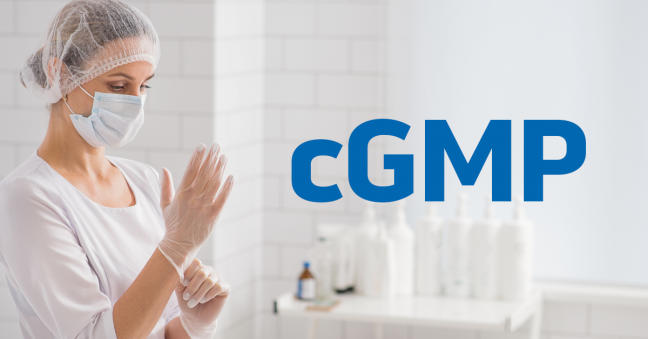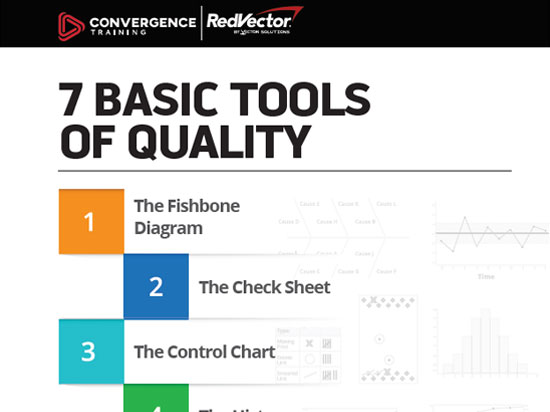
Good manufacturing practices are practices that manufacturers that produce food, beverages, pharmaceuticals, and medical devices must follow. Good manufacturing practices, or GMP, are sometimes also known as current good manufacturing practices, or cGMP. The point of putting the “c” to represent current is to remind manufacturers that they must stay up to date in their efforts, using the latest systems and technologies to ensure good manufacturing practices.
In this article, we’ll introduce you to the GMP/cGMP, including the regulatory agencies that enforce them in the United States, and we’ll link you to some additional resources where you can learn more.
If you’d like help with cGMP training or Quality training at your manufacturing facility, contact us.
- Learning Management Systems
- Online Quality Training Courses
- Online cGMP Training Courses
- Online Manufacturing & Maintenance Training Courses
- Incident Management Software
- Mobile Training Apps
What Are Good Manufacturing Practices?
Good manufacturing practices (GMP) are quality guidelines meant to ensure the safety of products such as food, beverages, cosmetics, pharmaceuticals, dietary supplements, and medical devices when consumed or used by the end customer.
Good manufacturing practices are followed by many companies making many different products in many nations. Likewise, different regulatory agencies enforce GMP regulations in different nations. GMP practices vary from industry-to-industry and GMP compliance requirements vary from nation-to-nation as well as industry-to-industry.
Basic provisions of good manufacturing practices are to ensure consistency of manufacturing, high quality, proper documentation, effective employee training, and quality assurance testing at multiple times during the production process.
Good manufacturing practices are not prescriptive, meaning, there’s more than one way to meet them. That means, for example, that different companies in the same industry and nation that make the same product could establish different methods for complying with GMP regulations. Typically, companies will make their choices based on what’s most effective and efficient for them.
It’s common for companies trying to use and enforce good manufacturing processes to do so with the use of a quality management system, or QMS.
What Are Current Good Manufacturing Practices (cGMP)?
Current good manufacturing practices, or cGMP, are essentially the same thing as good manufacturing practices. The additional “c” and “current” are used to remind manufacturers practicing good manufacturing practices to use the latest techniques, technologies, and systems, as cGMP/GMP efforts are dynamic and always evolving in a continuous improvement effort.
Common Issues Involved in cGMP
Below is a list of some of the key principles involved in cGMP:
- Maintaining a clean, hygienic manufacturing area
- Controlling environmental conditions to prevent cross-contamination
- Clearly defining and controlling manufacturing processes
- Validating critical processes to ensure consistency and compliance (see our article on HACCP for an example)
- Evaluating changes to manufacturing processes
- Using instructions and procedures written in clear, easy-to-understand, and unambiguous language
- Properly training operators at the manufacturing facility to carry out procedures
- Properly recording and documenting that all procedures and instructions were followed during manufacturing processes
- Properly recording and documenting that the quality of the manufactured item was as expected
- Documenting deviations from quality expectations and investigating them
- Maintaining records of manufacturing and distribution that allow the full history of a manufactured batch to be traced
- Storing those records of manufacturing in a logical way that’s easy to access
- Use of distribution techniques and procedures that reduce the risk to quality of products
- Creating a recall system for use, when necessary, to retrieve batches from consumers or supply
- Investigating product complains, investigating quality defects, and taking proper measures when products are defective
Industries Affected by cGMP Requirements in the United States
As mentioned earlier, GMP are typically enforced in industries that manufacture goods people eat, drink, ingest, apply, or have inserted into their bodies. This includes food, beverages, dietary supplements, pharmaceuticals, cosmetics, and medical devices.
The FDA Enforces GMP in the United States
In the United States, it’s the Food and Drug Administration (FDA), under Title 21 CFR, that enforces cGMP/good manufacturing practices. The FDA regulations use the phrase “current good manufacturing practices” (CGMP).
It’s worth knowing that US courts may consider a product to have been adulterated even if the manufacturer didn’t violate any specific regulatory requirement in cases when the manufacturer didn’t follow industry standards.
Some Additional Resources Related to cGMP
Check out these other articles we’ve created on issues created to good manufacturing practices/cGMP, stay tuned for more, and of course check out our online cGMP training and online Quality training courses.
- Quality Basics: Risk Management & PDCA
- The ISO 9001 Quality Management Standard
- Deming’s 14 Points: The Roots of TQM (includes free downloadable infographic)
- 7 Basic Tools of Quality (includes free downloadable infographic)
- Hazard Analysis and Critical Control Point (HACCP) for Food Safety
- The ISO 22000 Food Safety Management System Standard
- Common Food Safety Problems
- Pharmaceutical Manufacturing Safety Challenges and Solutions
Until next time, have a great day and please download our free Basics Tools of Quality guide, below.

Free 7 Tools of Quality Guide Download
Get this free guide to the 7 Basic Tools of Quality, widely used in quality assurance (QA) and other continuous improvement processes.